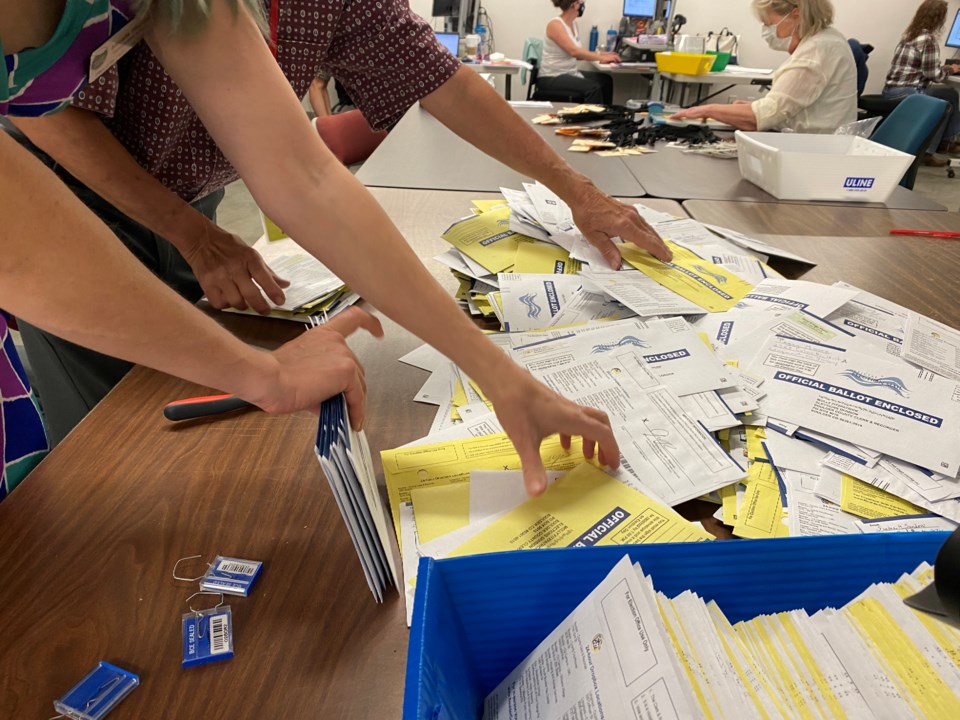While the measures on November’s ballot could increase taxes to fund things from local emergency services to healthy meals for all Colorado students, just how much Longmont taxpayers could end up paying or saving is a little complicated.
Boulder County has three ballot issues that could raise sales and use taxes if passed. Boulder County Ballot Issue 1A asks for an additional sales and use tax of 0.1% for funding wildfire mitigation efforts; 1B asks for another 0.1% for emergency services; and 1C asks for the existing 0.1% tax to continue in perpetuity for transportation.
According to the ballot language, the sales tax increases for wildfire mitigation and emergency services would raise $11 million each in their first full years. Using 2020 Boulder County Census data, that means each resident in Boulder County would pay roughly $33 more in sales and use tax annually for 1A or 1B, or about $66 more if both passed.
Notably, the sales and use tax for emergency services would decline to 0.05% at the end of 2027.
If the transportation tax is renewed, there is no additional cost to taxpayers. If it is not approved, residents would save roughly $33 each in the first full fiscal year.
Boulder County currently has a sales and use tax of 0.985%, including the existing transportation tax. If all three Boulder County measures are approved, that rate would go up to 1.185%.
Longmont’s total sales and use tax rate, which includes municipal, county, state, RTD and SCFD contributions, is currently 8.515%. An approval of all three Boulder County measures would bring sales and use tax up to 8.715%.
The only Longmont-specific ballot question that affects taxpayer dollars doesn’t actually increase taxes. Longmont Ballot Question 3C asks voters if the city can borrow up to $20 million to finance storm drainage system improvements along the St. Vrain Creek.
The borrowing will be paid for by the city’s existing storm drainage enterprise revenues, not a new tax, but there are a couple statewide measures that could also affect Longmont taxpayers.
Proposition FF proposes increasing state taxes by $100.7 million from households making $300,000 a year or more to fund free meals for all public school students. The measure would cap the amount of deductions a household over the income limit can have on their return.
According to an example provided by the state, for a single taxpayer with an income of $375,000 using a standard deduction, this would cost them $450 more a year, but exactly how much each person above the income limit would pay depends on their total deductions.
Proposition 123 does not increase taxes, but reduces the amount of money returned to taxpayers in years when state revenue is over the TABOR limit. This measure would set aside up to 0.1% of taxable income each year from the state general fund for affordable housing programs.
In a tax year, Proposition 123 would allocate $290 million for affordable housing. Based on forecasts, this could decrease the amount returned to taxpayers by about $86 per person when state revenue is high.
There is also a statewide measure proposing to reduce the state income tax rate from 4.55% to 4.4% through Proposition 121. On average, individual income taxpayers would pay $93 less in income taxes for tax year 2022, though the lowest income individuals will see the smallest change in taxes owed while the highest incomes will see the greatest decrease.
This change would also reduce the amount of money returned to taxpayers in any year the state collects above the TABOR limit.
Hypothetically, if state and Boulder County voters all chose to vote the most fiscally conservative options across the ballot, an average taxpayer in Longmont would save $126 more a year due to the ending of the transportation sales and use tax ($33) and the decrease in income tax ($93).
If the state and Boulder County voted across the board in favor of more taxes, taxes would increase by an average of $152 per person with the sales and use taxes ($33 for fire mitigation and $33 for emergency response) and the reduction in TABOR refunding ($86). If a household makes over $300,000, that increase could be higher depending on deductions.



